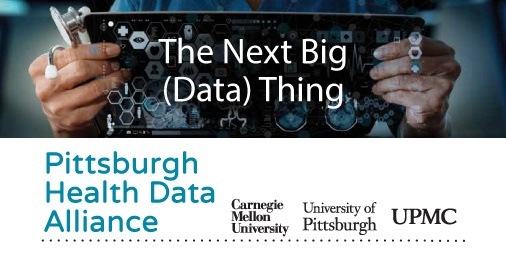
Pittsburgh Health Data Alliance (PHDA) announced today that it is working closely with Amazon Web Services (AWS), an Amazon.com company, through a machine learning research sponsorship, to advance innovation in areas such as cancer diagnostics, precision medicine, voice-enabled technologies and medical imaging.
Leveraging Machine Learning to Power Medical Research
A unique consortium formed four years ago by UPMC, the University of Pittsburgh and Carnegie Mellon University (CMU), the PHDA uses the “big data” generated in health care — including patient information in the electronic health record, diagnostic imaging, prescriptions, genomic profiles and insurance records — to transform the way that diseases are treated and prevented, and to better engage patients in their own care. New machine learning technologies and advances in computing power, like those offered by Amazon SageMaker and Amazon EC2, are making it possible to rapidly translate insights discovered in the lab into treatments and services that could dramatically improve human health.
AWS Machine Learning Research Sponsorship Overview
Through the AWS Machine Learning Research sponsorship, PHDA scientists from both Pitt and CMU expect to accelerate research and product commercialization efforts across eight projects, including those with the potential to create an individual risk score for every cancer patient, thus enabling doctors to better predict the course of a person’s disease and response to treatment; use a patient’s verbal and visual cues to diagnose and treat mental health symptoms; and reduce medical diagnostic errors by mining all the data in a patient’s medical record. Data are secure, anonymized and stay with PHDA institutions.
[irp posts=”42594″ name=”AI & Machine Learning is Shaping the Future of Healthcare Delivery”]
Using AWS to Improve Diagnosis and Treatment of Abdominal Aortic Aneurysms
Pitt researcher David Vorp, Ph.D., and his team are using AWS resources to improve the diagnosis and treatment of abdominal aortic aneurysms, the 13th-leading cause of death in western countries. Currently, clinicians can use only the simple measurements of an aneurysm’s diameter and growth rate to predict the risk of a rupture.
“With the latest advances in machine learning, we are developing an algorithm that will provide clinicians with an objective, predictive tool to guide surgical interventions before symptoms appear, improving patient outcomes,” said Vorp, associate dean for research at Pitt’s Swanson School of Engineering and the John A. Swanson Professor of Bioengineering.
[irp posts=”50069″ name=”Cerner Names Amazon Web Services (AWS) As Preferred Cloud Provider”]
Using AWS to Develop Algorithms to Understand The Origin & Evolution of Tumor Cells
A CMU led by Russell Schwartz, Ph.D., and Jian Ma, Ph.D., will use AWS support to develop algorithms and software tools to better understand the origin and evolution of tumor cells. This project will use machine learning to gain insights into how tumors develop and to predict how they are likely to change and grow in the future. “Data-driven, genomic methods guided by an understanding of cancers as evolutionary systems have relevance to numerous aspects of clinical cancer care,” said Schwartz, professor of biological sciences and computational biology at CMU. “These include determining which precancerous lesions are likely to become cancers, which cancers have a good or bad prognosis, and which of those with bad prognoses might respond long-term to specific therapies.”
[irp posts=”40855″ name=”Does Amazon Have What It Takes to Transform the Pharma Industry?”]
Why It Matters
“This collaboration with AWS complements the unique strengths of the PHDA’s founders and will provide unparalleled resources to our researchers,” said Tal Heppenstall, president of UPMC Enterprises, which funds the PHDA and focuses on commercializing its breakthroughs. “By leveraging AWS machine learning and artificial intelligence services, we can help Pittsburgh become the premier hub of technology innovation in health care, drawing innovators from companies big and small to join us in this critical effort to revolutionize the delivery of health care.”
